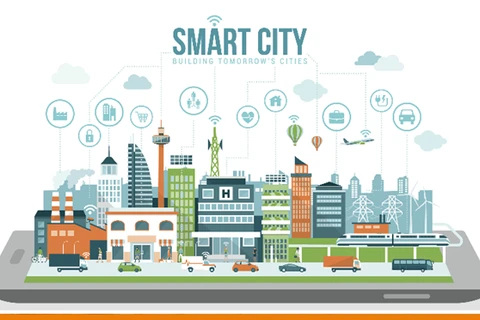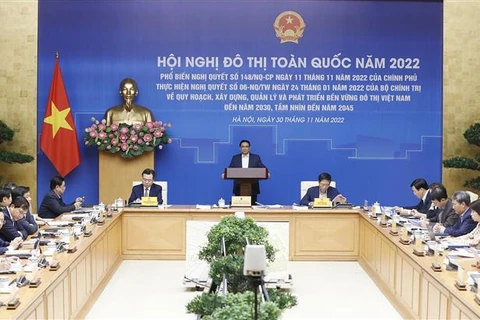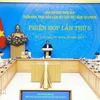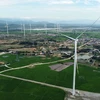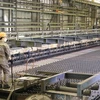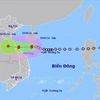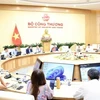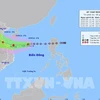Hanoi (VNA) – It is necessary to increase tree coverage to reduce the effect of heat-induced problems and increase the absorption of greenhouse gas emissions in urban areas, contributing to realising the target of net-zero emissions by 2050, according to Dr. Nguyen Tuan Quang, Deputy Director of the Department of Climate Change under the Ministry of Natural Resources and Environment.
Sectors and localities should promote the efficient use of energy, apply renewable energy solutions in production, traffic and urban lighting as well as recycling waste and wastewater in line with the circular model, and producing energy from waster, he said while mentioning solutions to ensure urban development associated with environmental protection and climate change adaptation.
Quang also highlighted the need to upgrade traffic works in areas vulnerable to climate change, construct buildings and urban areas in accordance with green standards and close to nature, and apply energy efficiency standards in buildings.
Echoing Quang's view, Mai Quoc Buu, from Van Lang University, said green projects must be designed in the direction of reducing energy and intensifying the adoption of clean and green energy.
Reports showed that Vietnam has more than 860 urban areas and the urbanisation rate has increased to nearly 40/% in 2021.
Urban areas are important driving force for socio-economic development, speed up economic restructuring towards industrialisation and modernisation. However, the rapid development of urban areas leads to overpopulation, increase economic development activities, high traffic density and high energy consumption, therefore, they are a huge source of greenhouse gas emissions - the cause of climate change.
Dr. Architect Ngo Minh Hung and Associate Professor Le Thi Kim Oanh from the Van Lang University said that the strong urbanisation process in developing countries has led to worsening environmental pollution, adding that the impacts of climate change make urban governance more difficult. Scarcity of water supply, heat, urban flooding and wastewater-related issues have been affecting the lives and socio-economic in urban areas, they said./.


